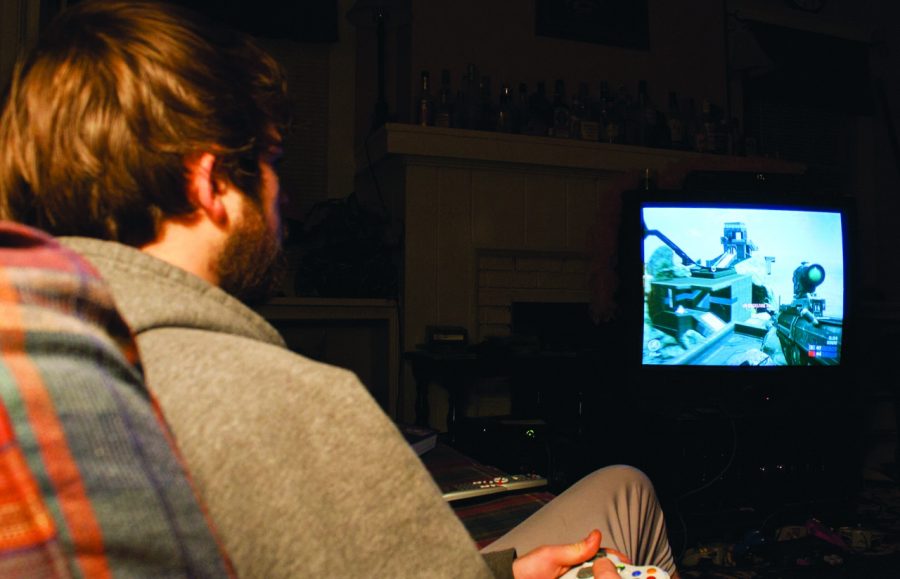Serious video game addiction linked to depression
February 17, 2011
According to Ntiedo Etuk, CEO and cofounder of Tabula Digita, by the age of 21, the average American adult will have played 10,000 hours of video games. That’s not your standard 16-Bit Super Mario World, Koopa-bashing game binge. That’s serious time spent in front of a TV screen.
Game play has become serious. With online connections for game platforms, players can play multiple opponents abroad as though they were in the same room. This expands the ability of today’s video gaming systems to let the gamer interact with others while at the same time enjoying a good, solid chunk of time spent as a digital character in a digital world.
But realistically, how much interaction is really experienced sitting in front of a TV or computer screen? The answer might shock some college students, but most already know how much social interaction a lot of serious gamers get. Circulation, the American Heart Association’s journal, says that over 70 percent of college students consider themselves avid gamers, and though this doesn’t necessarily mean that all 70 percent of these college students are depressed, it calls attention to just how pervasive video games are in the 21st century.
Dr. Lynn Martin, a student health services counselor, says one thing is for certain: there is a definite relationship between depression and video game addiction. Whether the video game addiction stems from lack of social interaction, or lack of social interaction stems from the video game addiction is arguable. But Dr. Martin insists that there is a relationship.
“The thing I worry about the most is the time spent playing the video games,” Martin said. In other words, video games in moderation aren’t the problem. It’s video games played excessively, until it cuts into study time or time that would be spent otherwise interacting with friends and loved ones. Martin also encourages those who play video games to socially interact more in their spare time. But just the time spent is not all. There is also money involved-money spent to buy new games.
Just like any addiction, video game addiction drains funds. And with money already tight for college students, spending more money on an addiction only worsens the situation. The worse off a student is financially, the more hopeless they may feel. The more hopeless they feel, the more likely it is that they will exhibit signs of depression. It’s a vicious circle.
But just because someone invests a lot of time in their video game playing doesn’t necessarily mean that they are depressed and antisocial. When it comes to video games, setting a time limit is important.
Jennifer Berry, a UNA counselor, said, “It’s not necessarily true that everybody who is addicted to video games more than the average [person] has depression.” She also assures college students that not everybody who is depressed plays video games. Berry also said, “It definitely allows [an addict] relationship without social connection, or, vice versa.” The only true way to tell if someone you’re concerned about is experiencing video game addiction is to watch for signs of depression. Even then, consult with a mental health counselor for the best course of action.
UNA’s health counselors can be reached at 256-765-4328.












